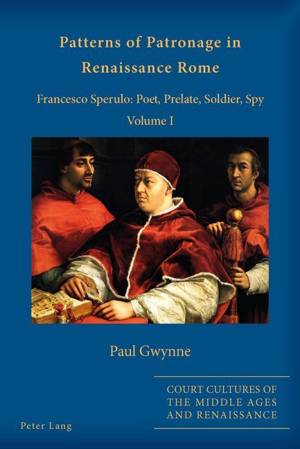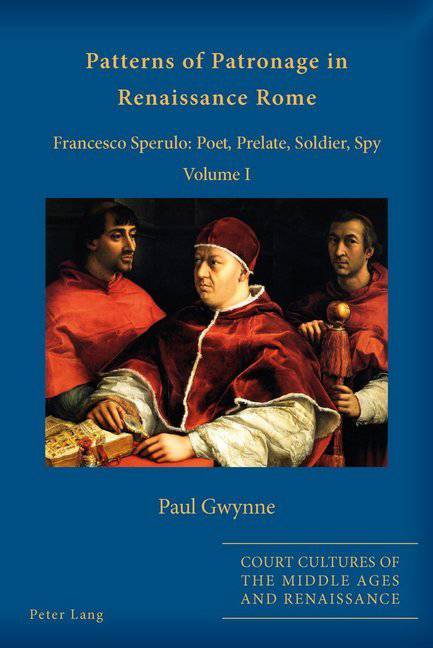
Door een staking bij bpost kan je online bestelling op dit moment iets langer onderweg zijn dan voorzien. Dringend iets nodig? Onze winkels ontvangen jou met open armen!
- Afhalen na 1 uur in een winkel met voorraad
- Gratis thuislevering in België vanaf € 30
- Ruim aanbod met 7 miljoen producten
Door een staking bij bpost kan je online bestelling op dit moment iets langer onderweg zijn dan voorzien. Dringend iets nodig? Onze winkels ontvangen jou met open armen!
- Afhalen na 1 uur in een winkel met voorraad
- Gratis thuislevering in België vanaf € 30
- Ruim aanbod met 7 miljoen producten
Zoeken
Patterns of Patronage in Renaissance Rome
Francesco Sperulo: Poet, Prelate, Soldier, Spy - Volume I and Volume II
Paul Gwynne
€ 371,45
+ 742 punten
Uitvoering
Omschrijving
Patterns of Patronage in Renaissance Rome is the first full-length study of the life and works of Francesco Sperulo of Camerino (1463-1531). In a remarkable career during which the poet progressed from serving as a soldier of fortune in the service of Cesare Borgia to an Italian bishopric, Sperulo produced a significant body of Latin poetry, here presented in a critical edition for the first time. An impressive array of contemporary figures including Leonardo da Vinci, Isabella d'Este, Raphael and Baldassare Castiglione appear in his verse. By placing his work within the larger historical, literary, political and social context, this study, published in two volumes, sheds light on the role played by neo-Latin poetry at the papal court and documents the impact of classical culture in Rome during the period usually referred to as «the High Renaissance».
Specificaties
Betrokkenen
- Auteur(s):
- Uitgeverij:
Inhoud
- Aantal bladzijden:
- 1164
- Taal:
- Engels
- Reeks:
Eigenschappen
- Productcode (EAN):
- 9781787079557
- Verschijningsdatum:
- 17/06/2015
- Uitvoering:
- Boek
- Afmetingen:
- 150 mm x 225 mm
- Gewicht:
- 1699 g

Alleen bij Standaard Boekhandel
+ 742 punten op je klantenkaart van Standaard Boekhandel
Beoordelingen
We publiceren alleen reviews die voldoen aan de voorwaarden voor reviews. Bekijk onze voorwaarden voor reviews.











